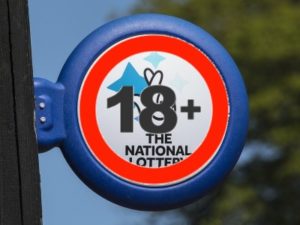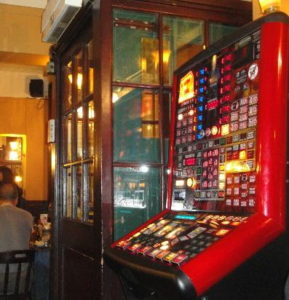Are Younger People Gambling Less?
 Those of a right-wing persuasion might wish to refer to younger people as ‘woke’ when they advocate more sustainable methods of living. From the increasing popularity of vegetarianism through to a desire to be polite and friendly when referring to people by their preferred pronouns, those under the age of 30 are far more likely to think about others in everything that they do. Part of that has included a decrease in smoking, alongside younger people drinking much less than ever before. This isn’t just in the United Kingdom, but in many countries that have previously boasted a drinking culture.
Those of a right-wing persuasion might wish to refer to younger people as ‘woke’ when they advocate more sustainable methods of living. From the increasing popularity of vegetarianism through to a desire to be polite and friendly when referring to people by their preferred pronouns, those under the age of 30 are far more likely to think about others in everything that they do. Part of that has included a decrease in smoking, alongside younger people drinking much less than ever before. This isn’t just in the United Kingdom, but in many countries that have previously boasted a drinking culture.
It is entirely reasonable to assume that younger people might also be gambling less than previous generations. After all, gambling is seen by many as being an anti-social and unhealthy activity, so it’s little wonder that those of an age group that care about such things might decide to avoid it where possible.
The question is, is this actually true? What we know for certain is that those young people that are introduced to gambling early on in life show an increased tendency to become problem gamblers as they grow older, but does this mean that younger people gable less?
What Do We Mean By ‘Younger People’?
 The most important thing to do in this conversation is to outline what it is that we mean by ‘younger people’. The dictionary definition of ‘young adults’ is ‘a person in their teens or early 20s’. Others suggest that it means between 18 and 30, whilst some studies look specifically at 17 to 24-year-olds. Because of this, is it tricky to look for exact information on the topic. Where possible, we will explain what age range is being talked about, but that isn’t always easy from the information that we have available to us at any given moment.
The most important thing to do in this conversation is to outline what it is that we mean by ‘younger people’. The dictionary definition of ‘young adults’ is ‘a person in their teens or early 20s’. Others suggest that it means between 18 and 30, whilst some studies look specifically at 17 to 24-year-olds. Because of this, is it tricky to look for exact information on the topic. Where possible, we will explain what age range is being talked about, but that isn’t always easy from the information that we have available to us at any given moment.
On account of the fact that it is illegal to gamble under the age of 18, we’ll be flagging up any moments at which the information we’re looking at applies to those under that age. There are some studies that look specifically at young people aged between 11 and 16 and their gambling habits, but we’re not necessarily looking at whether that age range is betting more than ever before. Instead, the matter of interest lies with the age group that is more likely to be described as ‘woke’ and can legally gamble, which is those aged 18 to 30.
What Happened In The Past
| Activity | % Of 16-24-Year-Olds | % Of 25-34-Year-Olds |
|---|---|---|
| National Lottery | 42 | 59 |
| Scratch Cards | 34 | 36 |
| Slot Machines | 24 | 22 |
| Horse Races | 15 | 19 |
| Sports Betting | 14 | 15 |
| Bingo | 10 | 10 |
| Dog Races | 6 | 7 |
| Any Form Of Gambling | 68 | 74 |
In 2010, the government released a report about gambling that outlined the various age brackets in which people gambled. The report broke down what sort of gambling the different ages engaged in, including what it determined to be ‘any form of gambling’. At the time, it was legal for those aged 16 and over to engage in the lottery, so the age brackets that we’re interested in were 16-24 and 25-34. The National Lottery and scratch cards were easily the most popular activity, but above is a look at some of the more interesting ones.
There are certainly some interesting things that come out from the survey. That 10% of respondents in the two age brackets we’re interested in had engaged in playing bingo is striking, for one thing. It’s also interesting to see that there is a relatively large different in the percentage of respondents who bet on the horses but it is much closer when it comes to generic sports betting and betting on the dogs. Equally, it is quite close in terms of scratch card purchases but not when it comes to the National Lottery.
How Have Things Changed?
| Activity | % Of 16-24-Year-Olds | % Of 25-34-Year-Olds |
|---|---|---|
| Online Gambling, Excluding National Lottery | 13.5 | 20.4 |
| In-Person Gambling, Excluding National Lottery | 15.5 | 17.8 |
| Online Gambling, Including National Lottery | 15.8 | 25.2 |
| In-Person Gambling, Including National Lottery | 16.6 | 20.4 |
| Any Form Of Gambling | 30.6 | 37.9 |
The information in the last section was taken from the British Gambling Prevalence Survey of 2010, which was the last time that that exact form of survey was carried out. There is still plenty of information around to tell us how much things might have changed, however. The table above looks at some data that, although different, is still able to tell us plenty about the gambling habits of young people.
That information is about people responding to the survey that had engaged in that form of gambling within the past four weeks, up to September 2021. It is clear to see that the the engagement in ‘any form of gambling’ is down significantly, dropping by more than half in the case of 16 to 24-year-olds and almost exactly half in those aged between 25 and 34. Again, this isn’t a perfect system because the same study wasn’t carried out in both years, but it does at least point towards the fact that fewer younger people are gambling now.
The Gambling Journey Of Young People

The United Kingdom Gambling Commission commission a study to look at the typical gambling experiences of young people within different age brackets. By doing so, they were able to chart what would be considered ‘normal’ gambling experiences for younger people as they grew into adulthood. Here’s what they found:
- 10-year-olds: Playing penny push / arcade machines and private betting with family
- 11-15-year-olds: Family supervised scratch cards, lotteries, bingo, some sports betting
- 16-17-year-olds: Solo scratch card and lottery, influenced by peers (until laws were changed in 2021)
- 18-21-year-olds: Trial and error with different forms of gambling such as sports and casino
- 22-30-year-olds: Fewer ‘new’ experiences, play becoming more restrained
As you might imagine, those that experienced gambling at a younger age were more likely to become problem gamblers when they were older, especially if not adequately supervised. In the modern day, more and more parents are clued up about the dangers of gambling and are therefore more likely to talk to young people about it. As a result of this, the argument is clear that younger people are less likely to gamble than ever before.
Regular Exposure Might See Number Increase
 Though the statistics are there to suggest that fewer young people are gambling than in the past, that might not be the case forever. Researchers at Ipsos Mori and the University of Stirling carried out a survey of young people and discovered that as much as 96% of people aged between 11 and 24 had seen marketing messages from gambling companies within the previous month. Not only that, but they also said that they were more likely to place a bet as a result of seeing such marketing.
Though the statistics are there to suggest that fewer young people are gambling than in the past, that might not be the case forever. Researchers at Ipsos Mori and the University of Stirling carried out a survey of young people and discovered that as much as 96% of people aged between 11 and 24 had seen marketing messages from gambling companies within the previous month. Not only that, but they also said that they were more likely to place a bet as a result of seeing such marketing.
Though gambling companies responded to criticism about their attitude towards young people and gambling by introducing a whistle-to-whistle ban on gambling advertising during sports matches, they got around this by most migrating their advertising online. This included attacking social media platforms such as Twitter, which some believe increased the risk to children. With 41,000 followers of gambling-related accounts likely to be under the age of 16, it is not clear what good the move online has done to stem to tide of young problem gamblers.



